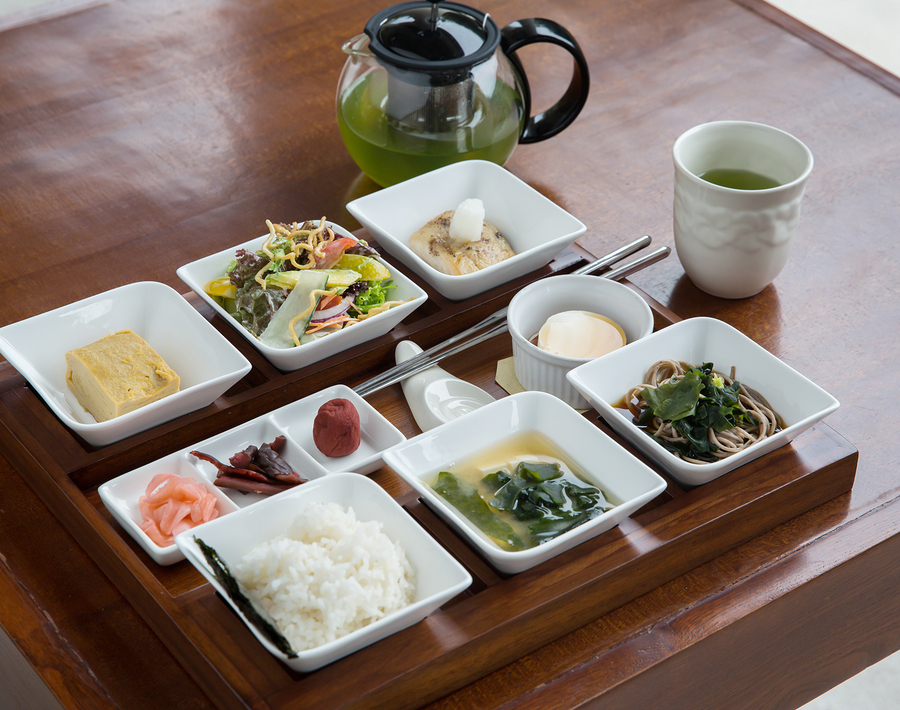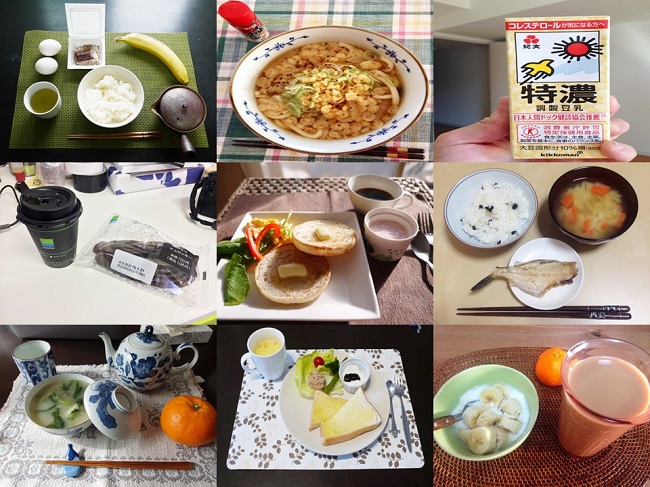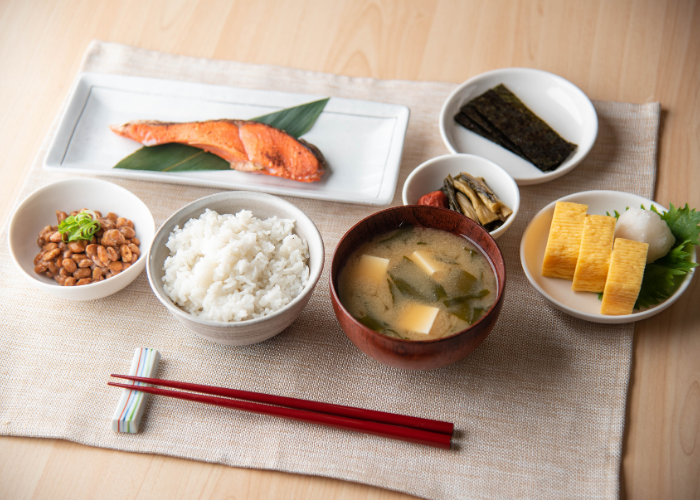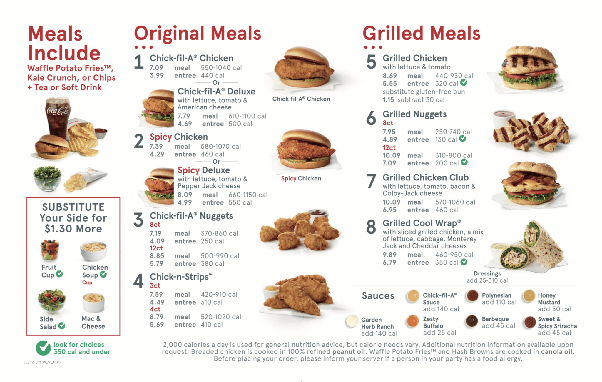What Do Japanese People Eat for Breakfast?: A Delicious Dive
Japanese breakfast is both tasty and healthy. It’s different from Western breakfast. Let’s explore what Japanese people eat for breakfast.
Traditional Japanese Breakfast
Traditional Japanese breakfast is simple and balanced. It includes various dishes. Here are the main components:
| Dish | Description |
|---|---|
| Rice | Steamed white rice is a staple. It’s served in a small bowl. |
| Miso Soup | Miso soup is made from miso paste and dashi broth. It often includes tofu and seaweed. |
| Grilled Fish | Grilled fish, often salmon or mackerel, is a common dish. |
| Tamagoyaki | Tamagoyaki is a sweet, rolled omelette. It’s soft and fluffy. |
| Pickles | Pickles, known as tsukemono, add a tangy flavor. They’re made from various vegetables. |
| Seaweed | Seaweed, or nori, is often eaten with rice. |
| Natto | Natto is fermented soybeans. It’s sticky and has a strong flavor. |
Modern Japanese Breakfast
Modern Japanese breakfast includes both traditional and Western foods. Let’s see some examples:
- Toast – Toast with butter or jam is popular.
- Cereal – Cereal with milk is quick and easy.
- Eggs – Eggs can be boiled, fried, or scrambled.
- Yogurt – Yogurt with fruits or granola is healthy.
- Sandwiches – Sandwiches with ham, cheese, and vegetables are common.
Seasonal and Regional Variations
Japanese breakfast varies by season and region. Let’s explore some unique dishes:
Seasonal Dishes
- Spring – Fresh greens and bamboo shoots are popular.
- Summer – Chilled dishes like cold noodles are refreshing.
- Autumn – Mushrooms and chestnuts are in season.
- Winter – Warm dishes like oden are comforting.
Regional Dishes
- Hokkaido – Dairy products and seafood are common.
- Kansai – Kansai-style dishes are lighter and sweeter.
- Kyushu – Kyushu cuisine includes many spicy dishes.
- Okinawa – Okinawan breakfast includes tropical fruits.
Healthy and Nutritious
Japanese breakfast is healthy and nutritious. It includes a variety of foods. These foods provide essential nutrients.
- Protein – Fish, eggs, and tofu are rich in protein.
- Carbohydrates – Rice and bread provide energy.
- Vitamins and Minerals – Vegetables and seaweed are full of vitamins and minerals.
- Fiber – Pickles and natto are good sources of fiber.

Credit: lasvegas-sushi.com
How to Make a Japanese Breakfast at Home
You can make a Japanese breakfast at home. Here are some simple steps:
- Cook Rice – Use a rice cooker for perfect rice.
- Prepare Miso Soup – Dissolve miso paste in hot dashi broth.
- Grill Fish – Season fish with salt and grill it.
- Make Tamagoyaki – Beat eggs, add sugar and soy sauce, and cook in a pan.
- Serve Pickles – Add your favorite pickles to the plate.
- Include Seaweed – Place nori sheets on the table.
- Add Natto – Mix natto with soy sauce and mustard.

Credit: soranews24.com
Frequently Asked Questions
What Is A Traditional Japanese Breakfast?
A traditional Japanese breakfast typically includes rice, miso soup, fish, pickles, and a variety of side dishes.
Do Japanese People Eat Rice For Breakfast?
Yes, rice is a staple in Japanese breakfasts, often accompanied by miso soup and other side dishes.
What Is Miso Soup Made Of?
Miso soup is made from fermented soybean paste, dashi broth, and various ingredients like tofu, seaweed, and vegetables.
Do Japanese People Eat Fish For Breakfast?
Yes, grilled or broiled fish is a common component of a traditional Japanese breakfast.
Conclusion
Japanese breakfast is diverse and delicious. It includes traditional and modern dishes. Each meal is balanced and nutritious. Try making a Japanese breakfast at home. Enjoy the taste and health benefits.
Thank you for reading! Share this article with your friends and family. Explore the world of Japanese cuisine together.






